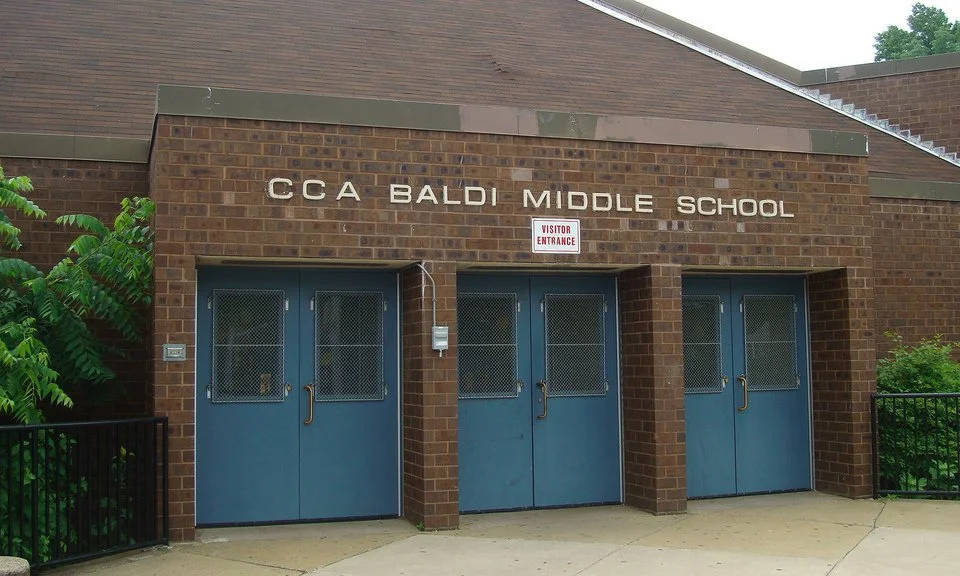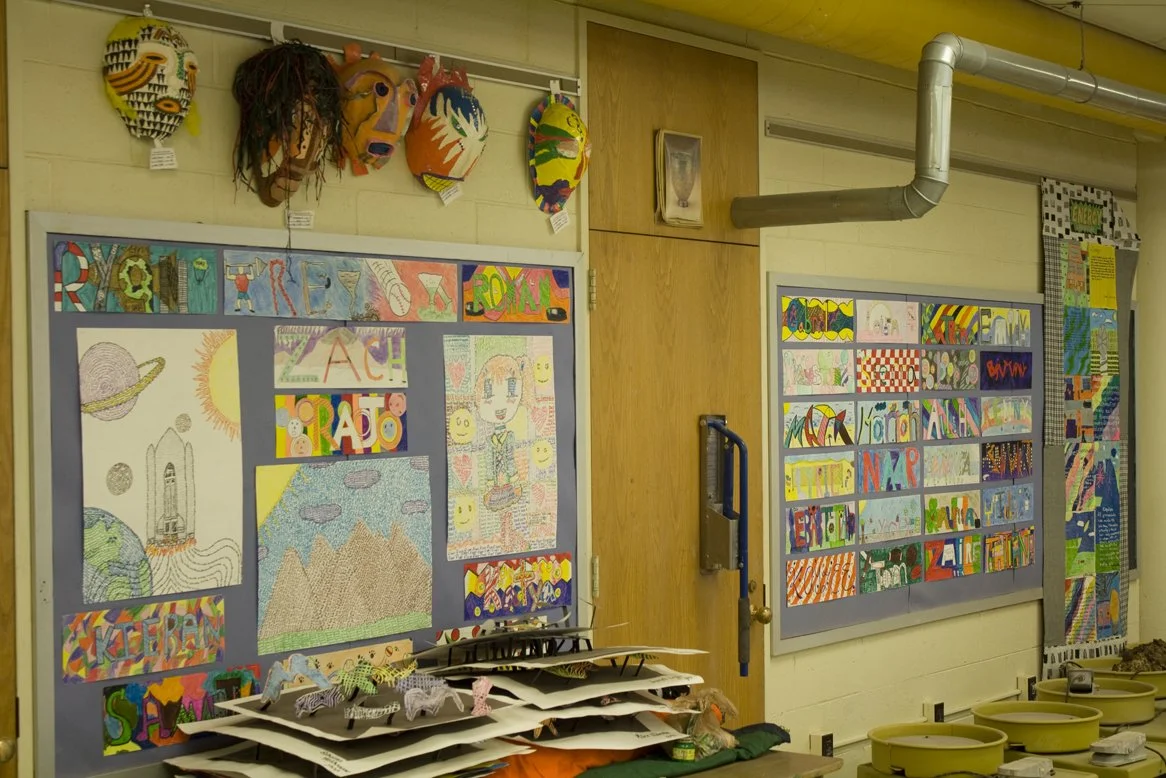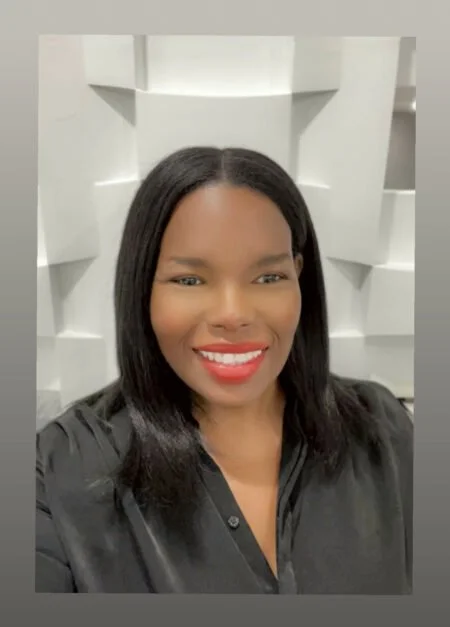Baldi Middle School Teachers File Potentially ‘Precedent-Setting’ Civil Rights Complaint Over Anti-Palestinian Discrimination
Lauren Abunassar
Three teachers at Philadelphia’s Baldi Middle School have just filed a federal complaint with the United States Department of Education, Office for Civil Rights (OCR) after facing severe disciplinary action for their support of Palestinian students. As part of their complaint, the three teachers – Caroline Yang, Emily Antrilli, and Jordan Kardasz – are underscoring community members’ allegations that the Philadelphia School district is failing to take accusations of discrimination against Palestinian students and pro-Palestine staff seriously. According to Yang, Antrilli, and Kardasz’s lawyer, Noelia Rivera-Calderón, the case could set a meaningful precedent on how the Office of Civil Rights responds to anti-Palestinian discrimination.
For Yang, Antrilli, and Kardasz, their fight began at Baldi in November 2023. A group of mostly Palestinian students approached the teachers expressing distress over Israel’s bombardment of Gaza. The students wanted to make ceasefire posters at school and, with the consent of their parents, Yang offered her classroom as a place for them to gather and create the posters as an afterschool activity. The posters students came up with called for peace between Palestine and Israel, as well as calls for ceasefire. Wanting to protect the students from any retaliation, Yang, Antrilli, and Kardasz volunteered to hang the posters on students’ behalf in the school commons. Within two hours, the posters were taken down by school administrators before any students entered the building. Four days after that, the school principal notified the teachers they were under disciplinary investigation.
Pictured above is Baldi Middle School, which serves grades 6-8. It’s located near the Bustleton section of Northeast Philadelphia. The school opened in September 1974 and is named after Italian immigrant Charles Carmine Antonio Baldi, who lived in Philadelphia. Photo credit: GreatPhillySchools.
“I assumed this would start a conversation, not disciplinary action,” Yang told Al-Bustan in an interview. Antrilli and Kardasz were similarly shocked that the issue escalated, insisting their intention was always to ensure students were protected and felt supported, especially given the school’s substantial Palestinian and Muslim student population. News of the investigation came as a shock. The recommended discipline determined in the investigation was an even greater shock: Five days unpaid suspension during which the teachers were still to report to school and a transfer, with prejudice, to another school. The teachers were also ordered to receive counseling and coaching from the Office of Diversity Equity and Inclusion and warned that additional unsatisfactory incidents would lead to more severe disciplinary action, including potential termination.
Today, all three teachers struggle to understand why hanging the posters was so offensive in the first place. “We were told the red handprints children made on the posters were threatening. We were told including the names of children murdered in Palestine on the posters were threatening. One poster said “Stop the Violence,” and [the school] said that was threatening too,” Yang told Al-Bustan. “We were told our impact didn’t match our intent [to show Palestinian students support].”
Pictured above: a classroom at Philadelphia’s Baldi Middle School, where three teachers have filed a federal complaint with the United States Department of Education, Office for Civil Rights. Photo: Learning Through Photography at Moore.
The investigatory process itself was similarly confusing and frustrating for the teachers. Antrilli noted that one hearing with her principal, union rep, and her principal’s rep left her in tears as she was mocked and interrogated aggressively. She expressed feeling unsafe in the meeting but was not allowed to leave. She was similarly troubled by the way school staff brought students into the fold of the investigation, questioning them on their involvement in making the posters. “They were anxious about what was going to happen to us [teachers] because they knew in the moment anything they said was going to get us in trouble,” Antrilli told Al-Bustan. “It’s a terrible position to put a 12-year-old in.”
Kardasz told Al-Bustan about the pressure staff faced to remain neutral on the issue. “It didn’t sit right with me since this didn’t feel like a balanced situation,” Kardasz said. It was an all the more puzzling directive given the school’s comparatively immediate and steadfast response for Ukraine when war broke out with Russia. Similarly, given the school’s significant refugee and immigrant population, it troubled Kardasz that there was a pervasive pressure to not speak about or address the issue of Palestine in school.
Though the district does not maintain public data on the number of enrolled Arab students in the district, Arabic is listed as one of the top five most spoken languages in the district. As an English as a Second Language (ESL) teacher, Kardasz said she tries to remain cognizant of how she can best express support for students from diverse and marginalized backgrounds. Hanging posters for the students was an extension of this philosophy of ensuring students felt heard.
Antrilli, Yang, and Kardasz’s experiences facing retaliation has expanded beyond their disciplinary hearings as well. After school on May 8th, the three were speaking in Antrilli’s classroom when two teachers entered the room and accused the teachers of indoctrinating students. One staff member allegedly grabbed Antrilli’s arm and asked if the teachers wrote “Free Palestine” on a whiteboard. Because Antrilli, Yang, and Kardasz had witnessed the doxxing of another teacher earlier that week, they reported the incident to school staff and expressed that it made them fear for their safety. Still, they are uncertain if anything came from the statements the school asked them to write about the incident.
Bianca C. Gillis is the principal of the Baldi Middle School, located in northeastern Philadelphia. Photo credit: Baldi Middle School.
The teachers are not the only ones to have been targeted. According to their OCR complaint, at a school-wide staff meeting in May, staff was told that any signs, writing, or clothing that supported just one country created an unsafe school environment. They specified that any sign of Palestine was particularly unsafe for Jewish students. The school principal, Bianca Gillis, similarly insisted anything “supporting one side” be removed from classrooms, despite an Israeli flag being on display with the U.S. and Italian flag in the school’s main office. Even before this, students and families reportedly questioned why the school neglected to hang a Palestinian flag with beside the more than 20 other nation flags in the school commons. Complaints about the exclusion of a Palestinian flag go back as early as September 2023. Though the Palestinian flag was eventually hung in January 2024, it was placed in reduced visibility and was not awarded an unveiling ceremony the principal previously promised it would receive.
Students have similarly faced exclusionary treatment for expressing support of Palestine. According to the OCR complaint, one Palestinian 7th grade student reported that a staff member running the school store called the student’s brother a “member of Hamas” for wearing a keffiyeh. A 6th grade student reported that an Israeli student called them derogatory names and teachers did not intervene. And even as far back as February 2023, a Baldi teacher is accused of pointing to a Muslim student wearing a hijab and saying all Muslim female students were trying to “pull a fast one” on school uniform policy. Complaints continue from there.
All of this, Yang, Antrilli, and Kardasz note, speaks to the underlying bigotry and lack of support for Palestinian and Muslim students at Baldi. The issue is not lost on parents, either. A parent with a student in Yang’s class, who prefers to remain unnamed, is confused and frustrated by the school’s treatment of Palestinian students and pro-Palestine staff. “This is something that is going to go down in history. It shouldn’t be ignored,” she told Al-Bustan. “Our kids just don’t feel they are free to express how they feel. That impacts them. It’s not just Palestinian students who are aware of what’s going on. Even my daughter’s friends– who are all different races – are still asking about the matter and praying for Palestine. It’s not just a Palestinian issue. It’s a human rights issue.
“Ms. Yang didn’t do anything wrong. This is about humanity. Too many innocent lives have been lost.”
This parent said that participating in the poster-making sessions was a comfort to her children, who have struggled to process what is going on in Palestine. When she heard rumors that Yang might be removed from school, she was even more troubled. “Ms. Yang didn’t do anything wrong,” she said. “This is about humanity. Too many innocent lives have been lost.”
Another parent, who also wishes to remain anonymous out of fear of retaliation, told Al-Bustan, “I’m very upset. I’m very angry that the district would retaliate against a teacher who is just trying to help students feel comfortable in their own skin… Who are you, as a school, to say [Palestinians] don’t have a right to advocate for themselves?” The parent denounced the Zionist ideals she feels have a stronghold on the school and the district at large. “It’s either that or everyone is afraid to lose their jobs. And I don’t blame them for that. But if you are not seeing the problem in silencing students and dialogue, how is that right? Let people feel free to speak about their identity… It’s like saying ‘you don’t exist and you don’t matter.’ And it leaves teachers and students who want to stand up feeling even more helpless.”
According to the disciplined teachers’ lawyer, Rivera-Calderón, the school district has had a long-standing blind spot when it comes to the issue of both Palestine and immigrant students. “School district support for immigrant students is almost non-existent and it’s been really hard to get them to pay attention to these issues. Now I’m seeing a similar thing with anti-Palestinian discrimination,” she told Al-Bustan. “I’m hoping we see some systemic remedies for the school district and that that sets a precedent for how future cases like this are treated.”
Rivera-Calderón first came across the Baldi case as a result of her work with Palestine Legal, an advocacy group focused on defending the legal and civil rights of people who support Palestine. The organization recently filed a civil rights complaint similar to Baldi’s against Columbia University regarding their handling of pro-Palestine protests on campus. What’s more, Baldi is just the latest in what Rivera-Calderón calls a flood of Palestine-related civil rights complaints filed with the OCR.
“By implicating Israel, we implicate the U.S.”
In the case of the Philadelphia school district, Rivera-Calderón noted that whether the district is willfully ignoring the issue of Palestine or simply at a loss for how to navigate it, it has become a huge problem that isn’t going away. In the demands listed in the OCR complaint, the Baldi teachers are requesting approval of a chapter of Students for Justice in Palestine at Baldi and every other district school that requests it, an independent review of all teachers disciplined in the district for their support of Palestinian students, and district-wide training on anti-Palestinian discrimination.
According to Yang, ensuring systemic change with the district may be difficult because, “By implicating Israel, we implicate the U.S. We have to face the fact that we are settlers,” she told Al-Bustan. “I think America’s military and industrial complex and the propaganda people are fed, combined with the Islamophobia of not just post 9-11 America but from long before that, is just a part of the way we, as Americans, are socialized.” She recognized this even in the way a labor relations representative present at one of her disciplinary meetings chastised her for thinking she had the right to decide who was the oppressor [in the case of Israel and Palestine]. “It feels related to our ahistoricism as a country and our lack of interest in recognizing what settler colonialism is,” Yang said.
As complaints from community members and families continue pouring into the Philadelphia School District, the question becomes how long staff and students will have to face the impact of the district’s silence. “Bigger picture, I hope people in the district realize what they’re doing is wrong,” Kardasz told Al-Bustan of her hopes for her own case. “That not acknowledging the pain and suffering of an entire nation of people is wrong. And that taking the side of an oppressor is wrong. I don’t know if that will happen.”
***
Lauren Abunassar is a Palestinian-American writer and journalist. A Media Fellow at Al-Bustan, she holds an MFA from the Iowa Writers’ Workshop and an MA in journalism from NYU. Her first book Coriolis was published by University of Arkansas Press as winner of the 2023 Etel Adnan Poetry Prize.



